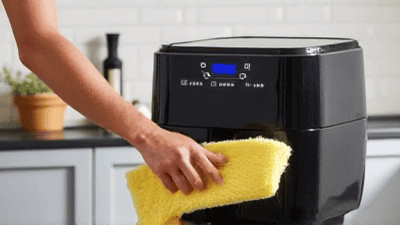Self-Care Journal: Document Your Growth Journey
In a world that often prioritizes busyness and productivity over well-being, the importance of self-care has become increasingly recognized. Self-care is not just about occasional pampering; it's a vital practice that fosters emotional resilience, enhances mental health, and promotes overall well-being.

In a world that often prioritizes busyness and productivity over well-being, the importance of self-care has become increasingly recognized. Self-care is not just about occasional pampering; it's a vital practice that fosters emotional resilience, enhances mental health, and promotes overall well-being. Among the many tools available for nurturing self-care, a self-care journal stands out as a powerful method for documenting your growth journey.
Understanding Self-Care
Before diving into the details of self-care journaling, it’s essential to understand what self-care truly means. Self-care can be defined as the practice of taking deliberate actions to improve one's physical, mental, and emotional health. This practice encompasses a wide range of activities that nurture the self, including physical exercise, mindfulness, healthy eating, social connections, and creative expression.
The Importance of Self-Care
Reduces Stress: Engaging in self-care activities can significantly lower stress levels, leading to a more balanced emotional state.
Enhances Emotional Well-Being: Regular self-care practices can help to mitigate anxiety and depression, providing individuals with the tools to manage their emotions effectively.
Increases Self-Awareness: Self-care encourages individuals to reflect on their needs, desires, and boundaries, promoting a deeper understanding of oneself.
Improves Relationships: When individuals prioritize self-care, they are often better equipped to engage and connect with others, fostering healthier relationships.
Promotes Resilience: Establishing a consistent self-care routine builds resilience, enabling individuals to navigate life's challenges more effectively.
What is a Self-Care Journal?

A self-care journal serves as a personal space for reflection, exploration, and documentation of one’s self-care journey. It allows individuals to articulate their experiences, emotions, and progress while providing a platform for creative expression.
Benefits of Keeping a Self-Care Journal
Encourages Mindfulness: Journaling promotes mindfulness by allowing individuals to be present with their thoughts and emotions.
Tracks Progress: Documenting experiences provides a way to track personal growth over time. Individuals can reflect on their journey and recognize progress, no matter how small.
Clarifies Goals and Intentions: Writing about aspirations and intentions helps solidify them, making it easier to create actionable plans for self-care.
Fosters Gratitude: Journaling often involves reflecting on positive experiences and express gratitude, which shapes a more optimistic mindset.
Creates a Safe Space: The journal serves as a private space where individuals can freely express themselves without judgment.
How to Start Your Self-Care Journal
Starting a self-care journal can feel daunting if you are unsure where to begin. The great news is that there are no rigid rules—each person's journal is unique to their experiences and preferences. Here’s a step-by-step guide to help you start your self-care journey through journaling:
Step 1: Gather Your Supplies
Choose a journal that resonates with you. It can be a physical notebook, a digital document, or a journaling app on your smartphone. Consider the following when selecting your journaling medium:
Physical Journal: Opt for a notebook that feels comfortable and inviting. You might want one with prompts or plain pages for free writing.
Digital Journal: If you prefer a digital format, explore journaling apps that offer features like reminders, templates, and cloud storage.
Writing Instruments: Choose pens or markers in colors that inspire you. Consider incorporating stickers or washi tape to make your journal visually appealing.
Step 2: Find Your Space
Create a dedicated space for journaling where you feel comfortable and relaxed. This could be a quiet corner of your home, a cozy café, or a peaceful spot in nature. Ensure that your journaling environment is free from distractions, allowing you to focus on your thoughts and feelings.
Step 3: Set an Intention
Before you dive into your journaling practice, take a moment to set an intention for your self-care journey. What do you hope to achieve through journaling? Your intention could be related to mental clarity, emotional healing, self-exploration, or personal growth.
Step 4: Establish a Routine
Consistency is key to reaping the benefits of journaling. Choose a regular time for your journaling practice, whether it’s in the morning, during lunch breaks, or before bed. Start with short sessions and gradually increase the time you spend journaling as you become more comfortable with the process.
Prompts and Ideas for Your Self-Care Journal

One of the great things about journaling is that it allows you to explore your thoughts and feelings in various ways. Here are some prompts and ideas to inspire your self-care journaling:
1. Daily Gratitude
Begin each entry by noting three things you are grateful for. Focusing on gratitude helps cultivate a positive mindset and shifts your attention toward the good in your life.
2. Emotional Check-Ins
At the start of each journaling session, take a moment to check in with your emotions. Write down how you feel in that moment and explore the reasons behind those feelings. This practice encourages emotional awareness.
3. Reflect on Self-Care Activities
Document the self-care activities you engaged in that day. Reflect on how they made you feel and any changes you noticed in your mood or well-being.
4. Set Intentions
Before starting each week, write down your intentions for the coming days. What do you want to focus on? What self-care practices do you want to prioritize? Setting intentions provides direction and clarity.
5. Explore Challenges and Solutions
Reflect on any challenges you face in your daily life and explore possible solutions. Writing can help you think through difficulties and gain insights into how to navigate them.
6. Document Your Achievements
Celebrate your accomplishments, both big and small. Write about moments that made you proud, whether they involve personal growth, work-related achievements, or acts of kindness.
7. Create Vision Boards
Incorporate creativity into your journal by creating vision boards. Use drawings, magazine cutouts, or digital images to represent your goals, dreams, and aspirations. Visual representation can be a powerful motivator.
8. Engage in Free Writing
Allow yourself to write freely without any specific prompt or structure. Write about anything that comes to mind. Free writing encourages self-expression and can lead to unexpected insights.
9. Reflect on Books or Podcasts
If you read a book or listened to a podcast that resonated with you, document key takeaways in your journal. Reflect on how the content relates to your self-care journey and any actions you may want to take based on these insights.
10. Make Lists
Create lists of things you enjoy, places you want to visit, activities that bring you joy, or people who inspire you. These lists serve as reminders of what nourishes your spirit.
Incorporating Self-Care Practices into Your Journal
Journaling can be an effective adjunct to various self-care practices. Here’s how to integrate self-care activities with your journaling experience:
1. Mindful Eating Journals
Pair journaling with mindful eating practices by documenting your meals and how they make you feel. Reflect on the nutritional benefits of your meals, your satisfaction levels, and any emotional connections to the food you consume.
2. Exercise Reflections
Use your journal to track your exercise routine while also reflecting on how physical activity impacts your mood and energy levels. Write about the type of exercise you did, how you felt before and after, and any personal discoveries related to movement.
3. Meditation and Mindfulness Journaling
After practicing meditation or mindfulness, take time to write about your experience. Document any thoughts or feelings that surfaced during the practice. This reflection can enhance the benefits of mindfulness.
4. Nature Connections
If you enjoy spending time outdoors, consider journaling about your experiences in nature. Describe the sights, sounds, and feelings associated with each outing. Nature has a profound impact on mental well-being, and documenting these experiences can amplify their effects.
5. Creative Expression
Incorporate creative outlets such as drawing, painting, or crafting into your journaling practice. Use your journal to document your artistic endeavors and express emotions through creative mediums.
Overcoming Obstacles in Your Journaling Journey

While journaling can be a fulfilling practice, you may encounter challenges along the way. Here are some common obstacles and strategies to overcome them:
1. Writer’s Block
It’s normal to experience days when writing feels challenging. If you find yourself stuck, try switching to a different type of entry or use prompts to jumpstart your writing.
2. Self-Criticism
Many individuals fear judgment or self-criticism when writing. Remind yourself that your journal is a safe space for authentic expression. Allow imperfection and embrace your unique voice.
3. Time Constraints
Finding time to journal may feel difficult amid a busy schedule. Consider setting aside just five to ten minutes each day for a quick check-in or entry. Incorporate journaling into your daily routine, such as writing during your morning coffee or before bed.
4. Emotional Overwhelm
Writing about difficult emotions can evoke intense feelings. If journaling becomes overwhelmingly emotional, take breaks as needed. Engage in self-care practices or seek professional support if necessary.
Reflecting on Your Growth Journey
As you consistently journal, take time to reflect on your growth journey. Consider the following approaches to evaluate your progress:
1. Periodic Review
Set aside time every month or quarter to review past entries. Reflect on patterns that emerge, changes in your emotional state, and progress toward your self-care intentions.
2. Celebrate Milestones
Acknowledge milestones in your growth journey. Celebrate your achievements, whether achieving a long-desired goal or overcoming a challenge. Recognition over time reinforces that progress is possible.
3. Goal Setting
Utilize insights gained from your journaling practice to set new goals. As you grow and evolve, you may discover new passions and interests. Write about these aspirations, outlining actionable steps toward each goal.
4. Share Your Journey
Consider sharing your self-care journey with trusted friends or family members. Sharing your experiences can foster deeper connections and create a sense of community around self-care practices.
Conclusion
A self-care journal serves as an invaluable tool for documenting your growth journey and enhancing your overall well-being. By committing to regular journaling practice, you can foster self-awareness, cultivate gratitude, and reflect on your experiences, all of which contribute to emotional resilience and personal development.
Remember that there is no right or wrong way to journal. Embrace the process, and allow your self-care journal to evolve alongside you. Whether your journey involves triumphs, challenges, or moments of deep reflection, writing provides a pathway for healing and growth. Ultimately, your self-care journal will become a cherished record of your journey toward a happier, healthier, and more fulfilled self.




